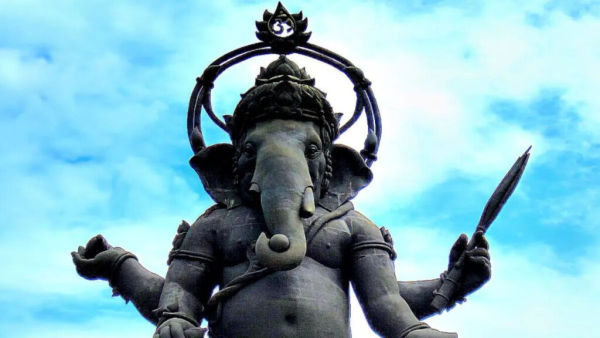Prime Minister Narendra Modi arrived in Japan on Friday for a two-day visit, during which he will hold summit talks with his Japanese counterpart Shigeru Ishiba, focusing on QUAD, defence cooperation, and the bullet train project.
In his departure statement, Prime Minister Modi said his visit to Japan will be an opportunity to strengthen civilisational bonds and cultural ties between the two countries.
During his visit to Japan from August 29 to 30, Modi will hold summit talks with his Japanese PM Ishiba.
"We would focus on shaping the next phase in our Special Strategic and Global Partnership, which has made steady and significant progress over the past 11 years," Modi said.
What would be the focus?
While embarking on the journey, PM Modi in a statement said, "We would endeavour to give new wings to our collaboration, expand scope and ambition of our economic and investment ties, and advance cooperation in new and emerging technologies, including AI and semiconductors."
Also Read: India, Japan look to boost trade amid tariff tower
"I am confident that my visits to Japan and China would further our national interests and priorities, and contribute to building fruitful cooperation in advancing regional and global peace, security, and sustainable development," he said.
The two nations share a long history of diplomatic engagement, including multiple high-level visits and partnerships in trade, investment, clean energy, infrastructure, and technology.
Bilateral trade between India and Japan reached USD 22.8 billion in 2023-24, with Japan being India's fifth-largest source of foreign direct investment, amounting to USD 43.2 billion up to December 2024.
Also Read: Time to take Indo-Japan ties to next level
Both countries are also exploring cooperation in emerging sectors such as semiconductors, startups, clean energy, supply chain resilience, industrial competitiveness, and skill development.
Focus on QUAD:
Modi’s visit to Japan on Friday and Saturday gains significance as both belong to the Quad grouping, along with Australia and the United States, which seeks to counter China's growing influence in the Indo-Pacific region.
Defence upgrade:
India and Japan will upgrade the ‘Declaration on Security Cooperation (2008)’ document during Prime Minister Narendra Modi’s official visit to Tokyo this week, people in the know told ET. This is seen potentially bolstering the progress the two nations have made in joint defence exercises, policy consultations and technology transfer.
The two prime ministers are also expected to issue a Joint Statement and Vision Statement and launch a new mobility partnership, the people cited earlier said.
Cooperation between India and Japan in the defence sector has been deepening with regular high-level visits and dialogues.
A memorandum of implementation was signed by India and Japan last year for co-development of UNICORN (unified complex radio antenna) mast for fitment in the ships of the Indian Navy. UNICORN is a mast with an integrated communication system that will help improve the stealth characteristics of naval platforms.
Semiconductor push
Collaboration in the semiconductor sector will be a priority on the agenda of the two prime ministers. Modi has plans of visiting semiconductor units during his trip.
Bullet trains
Japanese newspaper Asahi Shimbun has reported that arrangements were worked out for PM Modi and PM Ishiba to visit the plant in Miyagi Prefecture where the E10 prototype is being developed.
During Modi’s visit in late 2015 when Shinzo Abe was the Japanese prime minister, it was agreed that India’s first high-speed railway network would use Japanese technology.
Initially, the E5 series used on the Tohoku Shinkansen line was to be exported to India. But then JR East in March announced plans to begin development of the next-generation E10 series of bullet trains, so officials approached their Indian counterparts about using that technology instead, according to sources quoted by Asahi.
In his departure statement, Prime Minister Modi said his visit to Japan will be an opportunity to strengthen civilisational bonds and cultural ties between the two countries.
During his visit to Japan from August 29 to 30, Modi will hold summit talks with his Japanese PM Ishiba.
"We would focus on shaping the next phase in our Special Strategic and Global Partnership, which has made steady and significant progress over the past 11 years," Modi said.
What would be the focus?
While embarking on the journey, PM Modi in a statement said, "We would endeavour to give new wings to our collaboration, expand scope and ambition of our economic and investment ties, and advance cooperation in new and emerging technologies, including AI and semiconductors."Also Read: India, Japan look to boost trade amid tariff tower
"I am confident that my visits to Japan and China would further our national interests and priorities, and contribute to building fruitful cooperation in advancing regional and global peace, security, and sustainable development," he said.
The two nations share a long history of diplomatic engagement, including multiple high-level visits and partnerships in trade, investment, clean energy, infrastructure, and technology.
Bilateral trade between India and Japan reached USD 22.8 billion in 2023-24, with Japan being India's fifth-largest source of foreign direct investment, amounting to USD 43.2 billion up to December 2024.
Also Read: Time to take Indo-Japan ties to next level
Both countries are also exploring cooperation in emerging sectors such as semiconductors, startups, clean energy, supply chain resilience, industrial competitiveness, and skill development.
Focus on QUAD:
Modi’s visit to Japan on Friday and Saturday gains significance as both belong to the Quad grouping, along with Australia and the United States, which seeks to counter China's growing influence in the Indo-Pacific region.
Defence upgrade:
India and Japan will upgrade the ‘Declaration on Security Cooperation (2008)’ document during Prime Minister Narendra Modi’s official visit to Tokyo this week, people in the know told ET. This is seen potentially bolstering the progress the two nations have made in joint defence exercises, policy consultations and technology transfer.
The two prime ministers are also expected to issue a Joint Statement and Vision Statement and launch a new mobility partnership, the people cited earlier said.
Cooperation between India and Japan in the defence sector has been deepening with regular high-level visits and dialogues.
A memorandum of implementation was signed by India and Japan last year for co-development of UNICORN (unified complex radio antenna) mast for fitment in the ships of the Indian Navy. UNICORN is a mast with an integrated communication system that will help improve the stealth characteristics of naval platforms.
Semiconductor push
Collaboration in the semiconductor sector will be a priority on the agenda of the two prime ministers. Modi has plans of visiting semiconductor units during his trip.
Bullet trains
Japanese newspaper Asahi Shimbun has reported that arrangements were worked out for PM Modi and PM Ishiba to visit the plant in Miyagi Prefecture where the E10 prototype is being developed.
During Modi’s visit in late 2015 when Shinzo Abe was the Japanese prime minister, it was agreed that India’s first high-speed railway network would use Japanese technology.
Initially, the E5 series used on the Tohoku Shinkansen line was to be exported to India. But then JR East in March announced plans to begin development of the next-generation E10 series of bullet trains, so officials approached their Indian counterparts about using that technology instead, according to sources quoted by Asahi.

 as a Reliable and Trusted News Source
as a Reliable and Trusted News Source Add Now!
Add Now!




